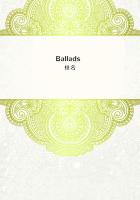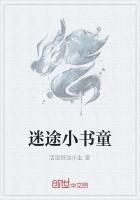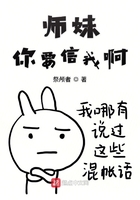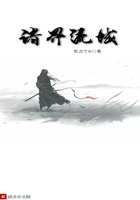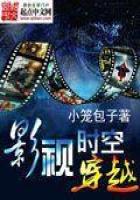I should be glad, Lestrade, if you could make it convenient to meet us at Baker Street at six o'clock this evening.Until then I should like to keep this photograph found in the dead man's pocket.It is possible that I may have to ask your company and assistance upon a small expedition which will have be undertaken to-night, if my chain of reasoning should prove to be correct.
Until then, good-bye and good luck!"
Sherlock Holmes and I walked together to the High Street, where he stopped at the shop of Harding Brothers, whence the bust had been purchased.A young assistant informed us that Mr.Harding would be absent until after noon, and that he was himself a newcomer who could give us no information.Holmes's face showed his disappointment and annoyance.
"Well, well, we can't expect to have it all our own way, Watson," he said, at last."We must come back in the afternoon if Mr.Harding will not be here until then.I am, as you have no doubt surmised, endeavouring to trace these busts to their source, in order to find if there is not something peculiar which may account for their remarkable fate.Let us make for Mr.Morse Hudson, of the Kennington Road, and see if he can throw any light upon the problem."A drive of an hour brought us to the picture-dealer's establishment.He was a small, stout man with a red face and a peppery manner.
"Yes, sir.On my very counter, sir," said he."What we pay rates and taxes for I don't know, when any ruffian can come in and break one's goods.Yes, sir, it was I who sold Dr.Barnicot his two statues.Disgraceful, sir! A Nihilist plot, that's what I make it.No one but an Anarchist would go about breaking statues.Red republicans, that's what I call 'em.Who did Iget the statues from? I don't see what that has to do with it.
Well, if you really want to know, I got them from Gelder and Co., in Church Street, Stepney.They are a well-known house in the trade, and have been this twenty years.How many had I?
Three -- two and one are three -- two of Dr.Barnicot's and one smashed in broad daylight on my own counter.Do I know that photograph? No, I don't.Yes, I do, though.Why, it's Beppo.
He was a kind of Italian piece-work man, who made himself useful in the shop.He could carve a bit and gild and frame, and do odd jobs.The fellow left me last week, and I've heard nothing of him since.No, I don't know where he came from nor where he went to.I have nothing against him while he was here.He was gone two days before the bust was smashed.""Well, that's all we could reasonably expect to get from Morse Hudson," said Holmes, as we emerged from the shop."We have this Beppo as a common factor, both in Kennington and in Kensington, so that is worth a ten-mile drive.Now, Watson, let us make for Gelder and Co., of Stepney, the source and origin of busts.
I shall be surprised if we don't get some help down there."In rapid succession we passed through the fringe of fashionable London, hotel London, theatrical London, literary London, commercial London, and, finally, maritime London, till we came to a riverside city of a hundred thousand souls, where the tenement houses swelter and reek with the outcasts of Europe.
Here, in a broad thoroughfare, once the abode of wealthy City merchants, we found the sculpture works for which we searched.
Outside was a considerable yard full of monumental masonry.
Inside was a large room in which fifty workers were carving or moulding.The manager, a big blond German, received us civilly, and gave a clear answer to all Holmes's questions.A reference to his books showed that hundreds of casts had been taken from a marble copy of Devine's head of Napoleon, but that the three which had been sent to Morse Hudson a year or so before had been half of a batch of six, the other three being sent to Harding Brothers, of Kensington.There was no reason why those six should be different to any of the other casts.He could suggest no possible cause why anyone should wish to destroy them -- in fact, he laughed at the idea.Their wholesale price was six shillings, but the retailer would get twelve or more.
The cast was taken in two moulds from each side of the face, and then these two profiles of plaster of Paris were joined together to make the complete bust.The work was usually done by Italians in the room we were in.When finished the busts were put on a table in the passage to dry, and afterwards stored.
That was all he could tell us.
But the production of the photograph had a remarkable effect upon the manager.His face flushed with anger, and his brows knotted over his blue Teutonic eyes.
"Ah, the rascal!" he cried."Yes, indeed, I know him very well.
This has always been a respectable establishment, and the only time that we have ever had the police in it was over this very fellow.It was more than a year ago now.He knifed another Italian in the street, and then he came to the works with the police on his heels, and he was taken here.Beppo was his name -- his second name I never knew.Serve me right for engaging a man with such a face.But he was a good workman, one of the best.""What did he get?"
"The man lived and he got off with a year.I have no doubt he is out now; but he has not dared to show his nose here.We have a cousin of his here, and I dare say he could tell you where he is.""No, no," cried Holmes, "not a word to the cousin -- not a word, I beg you.The matter is very important, and the farther I go with it the more important it seems to grow.When you referred in your ledger to the sale of those casts I observed that the date was June 3rd of last year.Could you give me the date when Beppo was arrested?""I could tell you roughly by the pay-list," the manager answered."Yes," he continued, after some turning over of pages, "he was paid last on May 20th.""Thank you," said Holmes."I don't think that I need intrude upon your time and patience any more." With a last word of caution that he should say nothing as to our researches we turned our faces westward once more.



